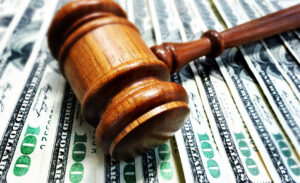
After an accident, victims often find themselves suffering many types of financial losses. Medical bills, lost wages, and other losses can really add up. Victims may be entitled to recover economic damages to compensate them for their out-of-pocket expenses. Accident victims frequently overlook these expenses, but they can form a large part of your claim’s value.
Out-of-pocket expenses can include any reasonable and necessary expenses you incur because of your accident. While deductibles and copays are a couple of the most common out-of-pocket expenses, there are many others as well.
Keep reading below to learn more about out-of-pocket expenses and how you can recover compensation for them with the help of our Tacoma injury lawyers.
Common Types of Out-of-Pocket Expenses

Out-of-pocket expenses can range from a few dollars to hundreds or even thousands of dollars. Though some of these expenses may seem small, they can really add up over time. Generally, these out-of-pocket expenses fall into one of several categories, including:
Medical Care Costs
The bills you receive for your medical treatments are not the only medical expenses you may incur after an accident. Most victims also incur many other types of incidental expenses related to their medical treatments.
Some of these expenses are directly related to your medical care, such as:
- The cost of bandages
- Prescription and over-the-counter medication
- Medical devices or equipment, such as crutches or a wheelchair
Similarly, you might have to travel to receive certain types of medical care. This can be especially true if you live in a small town without large medical facilities nearby.
If overnight travel is required, you could even be reimbursed for your hotel room and other travel expenses, such as:
- Vehicle mileage
- Fuel costs
- Airline tickets
- Restaurant or meal costs
- Parking fees
Remember that all these items must meet the “reasonable and necessary” test. Medical bills are usually one of the easiest expenses to relate back to your injuries. If a doctor ordered a specific test or treatment, then the costs associated with that will usually be included as part of your damages.
Accommodations During Your Disability
If you are seriously injured, you may be unable to perform your normal daily activities for some period of time. You could recoup those costs if you have to hire someone to perform these tasks.
Some common examples include:
- Child care, if your injuries prevent you from taking care of your children
- House cleaning expenses
- Lawn care costs
- Driving services, such as taxis or rideshare costs
- Cooking
Similarly, victims who suffer from permanent disabilities might have to adapt their homes to accommodate their disabilities. Adding wheelchair ramps, lower counters, accessible showers, or other bathroom accessories might be necessary. If you can prove that these items are necessary because of your disability, you may be able to get compensation for them.
Property Damage
Not only do accident victims suffer injuries in many cases, but they might also find themselves facing extensive property damage.
For example, after a car or truck accident, you could find yourself facing expenses for:
- Towing charges
- Rental car expenses
- Rideshare fees
Just like expenses for injuries, your expenses related to property damage must be reasonable and necessary. For instance, if you typically drive an old sedan, you likely will not be able to recoup the cost of renting a brand-new luxury SUV while your car is being repaired.
Proving Your Out-of-Pocket Expenses
Before you can get compensation for your out-of-pocket expenses, you will need to prove that you are entitled to them.
You must prove that:
- The defendant’s actions caused your expenses.
- The expenses were a foreseeable consequence of their actions.
- The expenses were reasonable and necessary.
- You can show the specific value or amount of the expenses.
Proving your out-of-pocket expenses usually requires having detailed records and documentation. The better your evidence, the more likely you will be able to win your claim. First, you can start by showing financial records that document the value of your expenses, such as bills, receipts, checks, credit card statements, and other financial documents.
You will also want to keep detailed records of these expenses. For instance, if you have to travel for a medical appointment, keep a log of your travel date, the reason for your travel, the mileage you incurred, and other important details about the trip. Having this documentation can be crucial to proving that your expenses qualify for reimbursement, especially when an insurance adjuster or a jury is reviewing them.
Contact a Tacoma Personal Injury Lawyer for a Free Consultation
If you have been hurt in an accident in Tacoma, you may be able to get compensation from the at-fault party for all your out-of-pocket expenses. However, proving your case without the help of an experienced personal injury lawyer can be tough.
At Darrell Cochran Personal Injury Lawyer, we have more than 30 years of experience helping injury victims get the compensation they deserve.
Contact us today at (253) 264-0225 to schedule a free consultation with a Seattle personal injury lawyer, and let us use our experience to help you.
